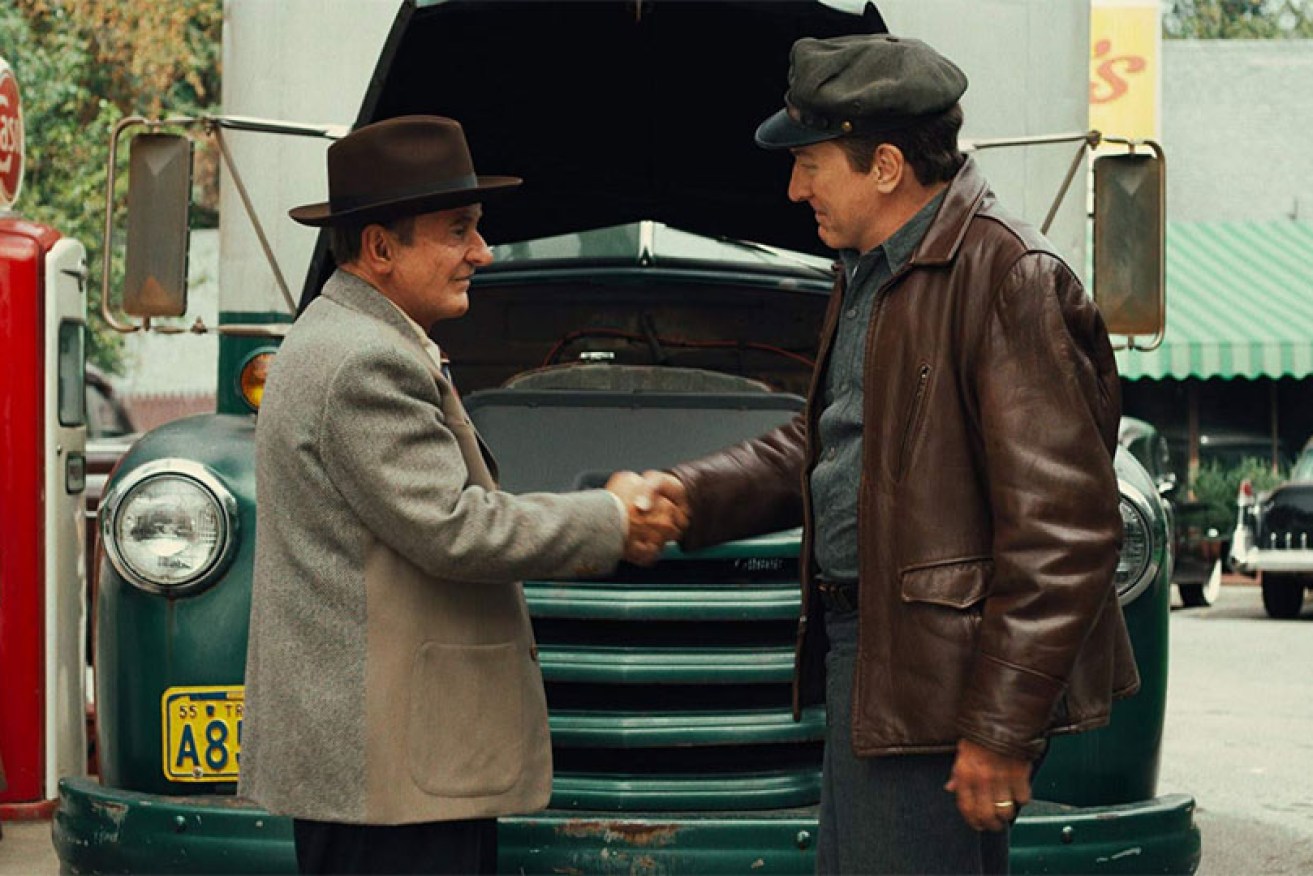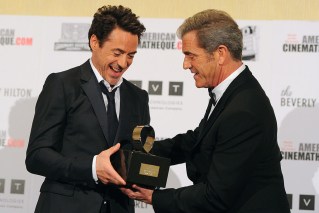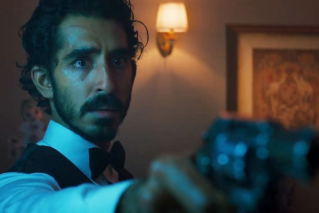Why The Irishman failed to win love at the Oscars or anywhere

Joe Pesci and Robert De Niro get down to it in The Irishman. Photo: TriBeCa Productions
I loved The Irishman. There, I said it. For me, the majestic mob saga stood at the top tier of Martin Scorsese’s oeuvre.
It had all the brutality and energy of Scorsese’s masterpiece, Goodfellas, but was also an old man’s film in which mobsters reflect on the wreckage of their lives.
The ‘excessive length’ didn’t bother me either.
A three-hour-plus running time didn’t hurt the critical response to such borefest’ as Gone With the Wind, Ben-Hur or Titanic.
And there were plenty like me singing The Irishman’s praises, including the National Board of Review, which awarded it best film of 2019.
And lo and behold, the Hollywood Foreign Press Association, British Academy Film Awards and Academy of Motion Picture Arts and Sciences agreed, showering it with five, 10, and 10 nominations respectively.
Yet The Irishman emerged from that shower bone dry. Not a single award. Nada.
By the time Oscar night arrived no one seriously expected Martin Scorsese’s mob marathon to salute.
1917 had charged past Quentin Tarantino’s Hollywood ode as favourite weeks earlier, and Parasite was surging home with a wet sail.
Still, here was a film made by arguably the greatest living director in his specialist genre, featuring strong performances from two of the greatest stars of the 1970s and 1980s.
The Irishman made numerous critics’ top 10 lists (mine included). Surely one lousy statuette wasn’t too much to ask.
So, what went wrong?

Al Pacino, Martin Scorsese and cinematographer Rodrigo Prieto on the set of The Irishman. Photo: TriBeCa Productions
The Netflix factor
The Academy, like the Hollywood Foreign Press Association, simply isn’t convinced by Netflix films.
Of the other highly touted Netflix productions, Marriage Story didn’t improve on its Golden Globes haul of one, and The Two Popes scored as many wins as The Irishman.
What’s more, two highly regarded lead actor performances, Eddie Murphy in Dolemite is My Name and Adam Sandler in Uncut Gems, were snubbed entirely.
Roma might have raked in a trifecta last year (albeit losing in seven more categories) but it looks as if Academy members who have no love for streaming services, like Steven Spielberg, still have a major influence over AMPAS votes.
The Scorsese factor
Scorsese and Tarantino both had dogs in this fight. But both also have woeful Oscar records.
Granted, Brad Pitt and Christoph Waltz scored Oscars for supporting roles in Tarantino productions, as did Ennio Morricone’s The Hateful Eight score.
But Tarantino has only two Oscars from eight nominations, both for best original screenplay.
Scorsese’s return is worse.
Robert De Niro and Paul Newman might have won best actor for 1980’s Raging Bull and 1986’s The Color of Money, but their director, Scorsese, has a solitary win from 14 nominations, for directing The Departed (which won another three Oscars, including best picture in 2007).
Crime sagas have produced particularly dismal yields for Scorsese, with Gangs of New York also going zero from 10 at the 2003 Oscars and The Wolf of Wall Street zero from five in 2014.
Even Goodfellas, rightly regarded as the uncrowned best picture of 1990 and to which The Irishman has been unfavourably compared, won only one of its six 1991 nominations, for Joe Pesci as best supporting actor.
Anyone who cited the Scorsese factor as a reason The Irishman would win hasn’t been paying attention.

Scorsese directs Robert De Niro in the mobster flick. Photo: TriBeCa Productions
Changing the guard
The Irishman’s failure hardly tarnishes Scorsese’s reputation.
Alfred Hitchcock never won an Oscar and Bong Joon Ho acknowledged his debt to Scorsese and Tarantino in his generous acceptance speech. But another thing Scorsese’s and Tarantino’s films had in common was white male rage.
Both films told the story of middle-aged men out of step with their changing worlds and turning to violence to reassert themselves.
Just because Scorsese and Tarantino explore this theme better than other directors doesn’t mean audiences have an inexhaustible appetite for it.
If we want to see ageing men raging at the world, we can always turn to political watching: Twitter and Sky News ought to do it.
The Academy, instead, selected a jet-black social satire that explores the illicit redistribution of unearned wealth.
After Academy members’ failure of nerve denied Brokeback Mountain its win in 2006, it’s refreshing to see them embracing contemporary relevance – even if it involves subtitles.
I was first in line for Goodfellas and Pulp Fiction, as I will be for Scorsese’s and Tarantino’s next features.
But I suspect strongly that Bong Joon Ho’s follow-up to Parasite will have something more original to say.








